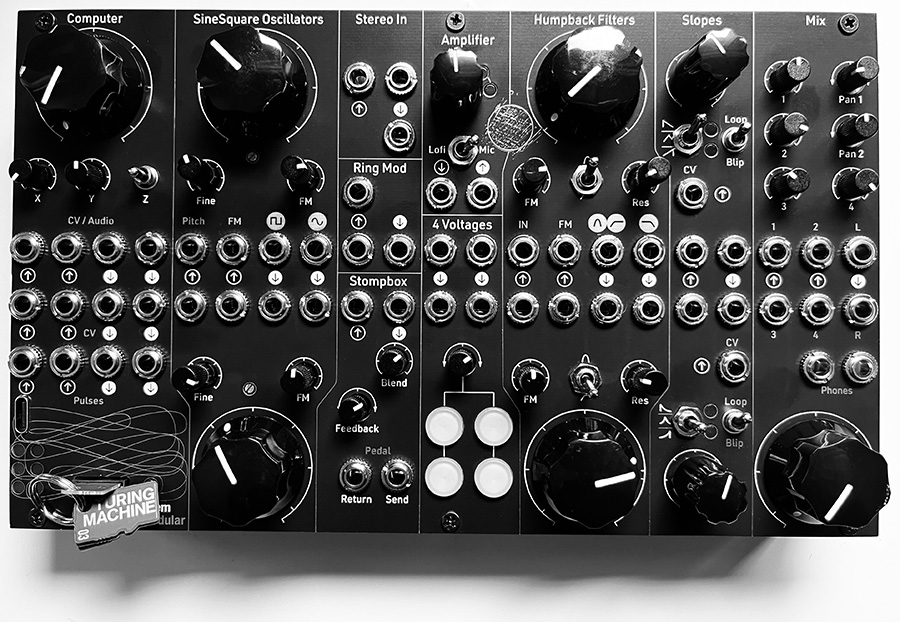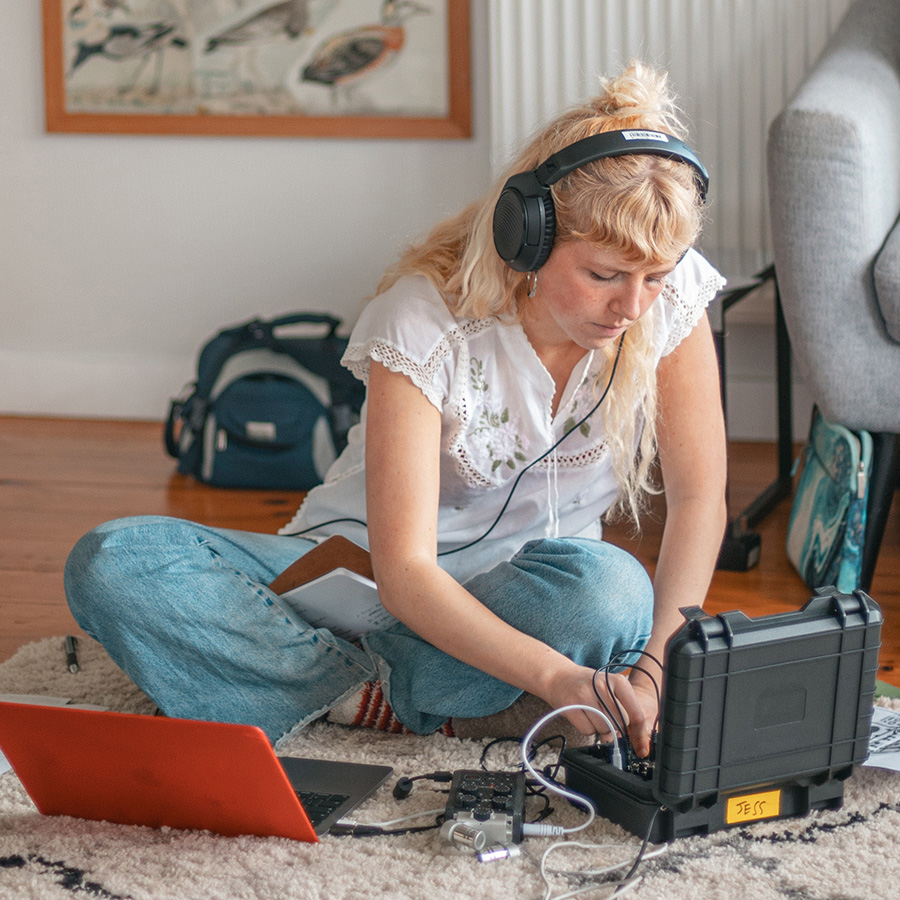Tom Whitwell and Thonk have revealed their latest: a complete modular system ready to be tote in its own hard case. The Workshop System has all the modular, patchable goodness you’d expect—contact mics and guitar/stereo line inputs—but it’s also got a computer inside, with unique programmable cards.
This is an all-in-one modular system, but it’s unique for its expandability. It connects to contact mics and line inputs and acts as a guitar pedal interface – not unlike the Koma Elektronik Field Kit in taking an experimental approach to the world around you. But it also has a multi-functional computer module built around the RP2040 chip (as seen on the Raspberry Pi Pico).
Now, they could have just added a USB port and called it a day. Instead, there are removable program cards for that game cartridge vibe. Code these in C/C++, Arduino Pico, Circuit Python, and the usual toolchain that runs on this chip.

Computer has audio, CV, and pulse ins and outs, plus knobs and a switch. What it does is then up to you – the stock kit comes with a USB MIDI card, a Turing Machine sequencer, and a Reverb card. More cards are on the way from “a community of programmers” (a gaggle of geeks? a murder of nerds?) – or, of course, make your own. And they look adorable – check them on that keychain.
The onboard modules, apart from that:

- 2x sine / square analog oscillators
- 2x Humpback Filters (via Philip Goulding of God’s Box)
- Ring Mod (which doubles as a VCA)
- Amplifier (one piezo contact mic, one Minimoog-style input)
- 4 Voltages (four voltage outputs, one knob, four pushbuttons)
- Stereo In (3.5mm line in, amplified to modular level)
- Mix output mixer – two stereo channels, two mono channels, headphone amp/line out
And the whole thing you can power on USB-C or 12-25V barrel connectors. So your power bank, your laptop adapter, etc. etc. all work.
This is a kit, so you’ll be doing some soldering – though I’m sure that’ll make many of you happier. And it’s not out yet, though you can sign up for interest/waitlist.
Cost: “around” £400, including sales tax.
It’s not lost on me that you could budget for this instead of today’s Ableton Move. It would give you the opposite experience, programmable and patchable and more experimental, yet would still be portable and run off batteries. Or, some people might get both – get this plus the Move, and you really would have a complete, if very unusual, rig. And why not? Or … why not any countless number of other combos?
I’ll hopefully speak to Tom later this week. Music thing and CDM each turn 20 this year. All the things continue.
More:
https://www.musicthing.co.uk/workshopsystem
Source for this, as pictured here below – Dyski Sound Maps Residency in April 2024 — played by Jess Borders, picture by Hannah de Oliveira Whitlock.
